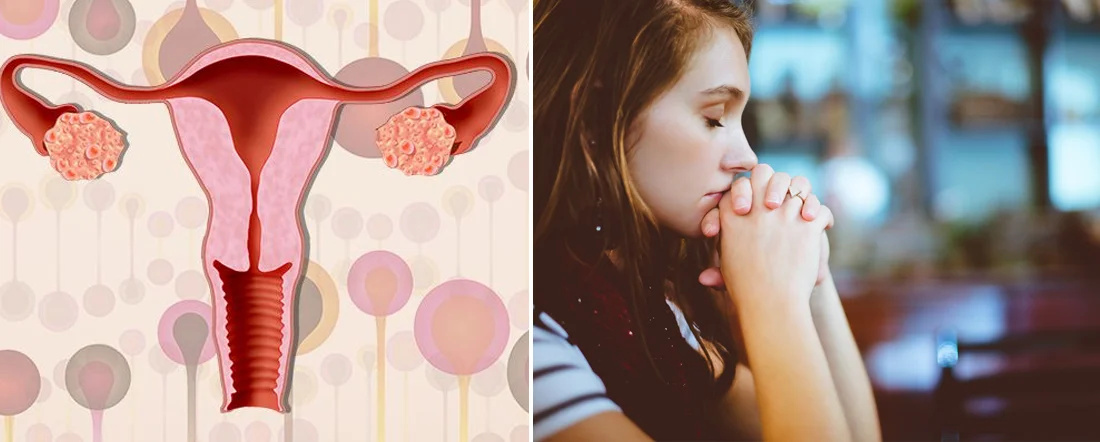Top Stories
- Know Everything About Nipah Virus, Which Is Back In Kerala Again
- Kevin Porter Jr Arrested On His Girlfriend’s Assault Charge
- Market Change Overnight - Know The 8 Things That Did It
- Who Are Alba Baptista And Chris Evans Married On The Weekend?
- Disrupted India vs Pakistan Asia Cup 2023 Match on Reserve Day
- 10 Common Foods That Contain No Calories or Are Very Low in Calories
- Men’s Styling Tips - Know the 9 Common Style Mistakes to Avoid
- Coco Gauff Beats Karoline Muchova and Reaches the US Open Final
- Danny Masterson Gets Life Sentence of 30 Years for Two Rapes
- Experience A Splendid Vacation in Kashmir with These 15 Gorgeous Sights
- India
- Friday , July 26, 2024
- Last Published Sep 12, 2023, 6:48:32 PM

How to Treat Polycystic Ovary Syndrome Effectively
What is polycystic ovary syndrome?
Polycystic ovary syndrome (PCOS) is a hormonal disorder which is common among women of reproductive age. Women with PCOS may have infrequent or prolonged menstrual periods or excess male hormone (androgen) levels in their bodies. The ovaries may develop numerous small collections of fluid (follicles) and fail to release eggs on a regular basis. The exact cause of PCOS is not clear yet. Early diagnosis and treatment along with weight loss may reduce the risk of long-term complications, such as type-2 diabetes and heart disease.Pcos Symptoms and Treatment
Signs and symptoms of PCOS often develop in women around the time of the first menstrual period during puberty. Sometimes PCOS develops later, for example, in response to substantial and unnatural weight gain. Pcos symptoms and treatment vary from person to person. A diagnosis of PCOS is made when you experience at least two of these signs:- Irregular periods: Infrequent, irregular or prolonged menstrual cycles are the most common sign of polycystic ovary syndrome. For example, you might have fewer than nine periods a year, more than 35 days between two periods and abnormally heavy periods.
- Excess androgen: Elevated levels of male hormones may result in physical signs, such as excess facial and body hair (hirsutism), and on rare occasions, severe acne and male-pattern baldness.
- Polycystic ovaries: Your ovaries might be enlarged, and contain follicles that surround the eggs. As a result, the ovaries might fail to function as they should.
Diet to follow for patients suffering from PCOS
A low Glycemic Index (GI) diet: The body digests foods with a low GI more slowly, meaning they do not cause insulin levels to rise as much or as quickly as other foods, such as some carbohydrates. Foods in a low GI diet include whole grains, legumes, nuts, seeds, fruits, starchy vegetables, and other unprocessed, foods with low carbohydrates. Polycystic ovary syndrome diet can include these. If you have Polycystic Ovary Syndrome, physical exercise can help treat or even prevent insulin resistance and help you keep your weight under control and avoid developing diabetes. An anti-inflammatory diet: Anti-inflammatory foods, such as berries, fatty fish, leafy greens, and extra virgin olive oil, may reduce inflammation-related symptoms, such as fatigue. The DASH diet: Doctors often recommend the Dietary Approaches to Stop Hypertension (DASH) diet to reduce the risk or impact of heart disease. It may also help manage PCOS symptoms. A DASH diet is rich in fish, poultry, fruits, vegetables whole grain, and low-fat dairy produce. The diet discourages foods that are high in saturated fat and sugar, like processed foods.Disclaimer - The texts with tips or advice mentioned here are only for generic information, but not for a substitute of medical advice. Before applying any advice or tips, you should consult a respective doctor or expert. ATT is not responsible if you have any bad impacts on your health.












